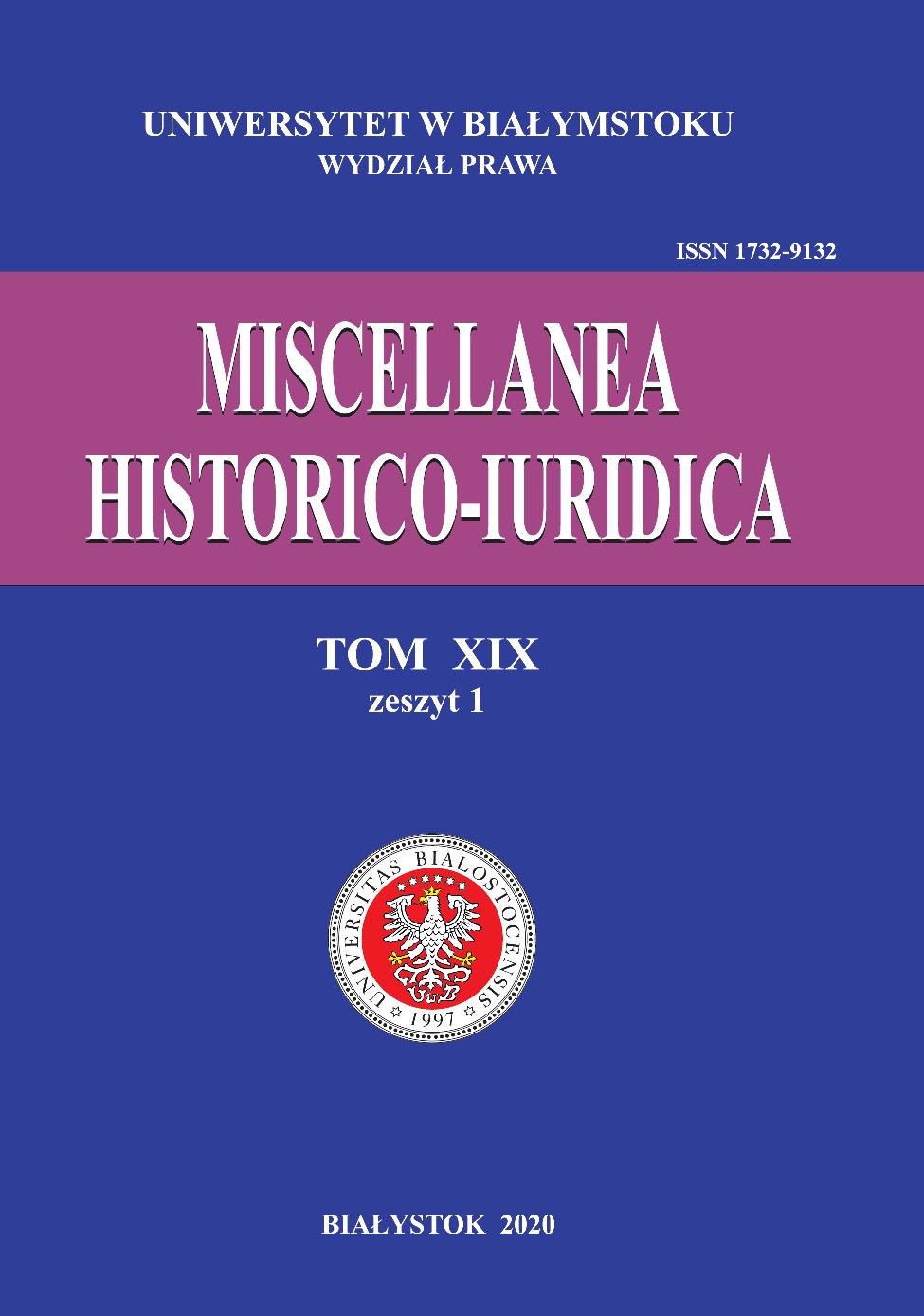Sentencing Jews to work on Ottoman Naval Ships and in Forced Labor at the Imperial Arsenal from the Early 16th Century to 1839
Sentencing Jews to work on Ottoman Naval Ships and in Forced Labor at the Imperial Arsenal from the Early 16th Century to 1839
Author(s): Leah Bornstein-MakovetskySubject(s): Law, Constitution, Jurisprudence, History of Law, Maritime Law
Published by: Wydawnictwo Uniwersytetu w Białymstoku
Keywords: Ottoman Empire; Jews; arsenal; forced labour; kürek; Tersâne-i Amire; the galleas; Kapudan Paşa; oarsmen; firman; Jewish leaders; Jewish court of law
Summary/Abstract: The purpose of the article is to discuss punishments of kürek, i.e., penal servitude on the galleys, and forced labor at the Imperial Arsenal (Tersâne-i Amire), imposed on Jewish men by kadis and Ottoman governors during the 16th-19th centuries in the Ottoman Empire. The kürek (lit. “oar”) punishment was inflicted for serious crimes, e.g., adultery, heresy, prostitution, and coin-clipping, as well as other grave offenses for which the Shari'ah/Kanon prescribed the death penalty. At times it was also administered for lesser crimes. We learn that this punishment was administered particularly when the Ottoman navy needed more working hands, mainly after the Battle of Lepanto in October 1571 and during the campaign for the conquest of Crete in the 1660s. This punishment was meted out mainly to Jewish offenders from Istanbul and Izmir. The article discusses the execution of these punishments in light of many sources and draws conclusions in the light of extensive research literature. It devotes extensive discussion to the attitude of Jewish leaders, Jewish courts of law and individual Jews to these penalties both in theory and in practice.
Journal: Miscellanea Historico-Iuridica
- Issue Year: 19/2020
- Issue No: 1
- Page Range: 421-442
- Page Count: 22
- Language: English

